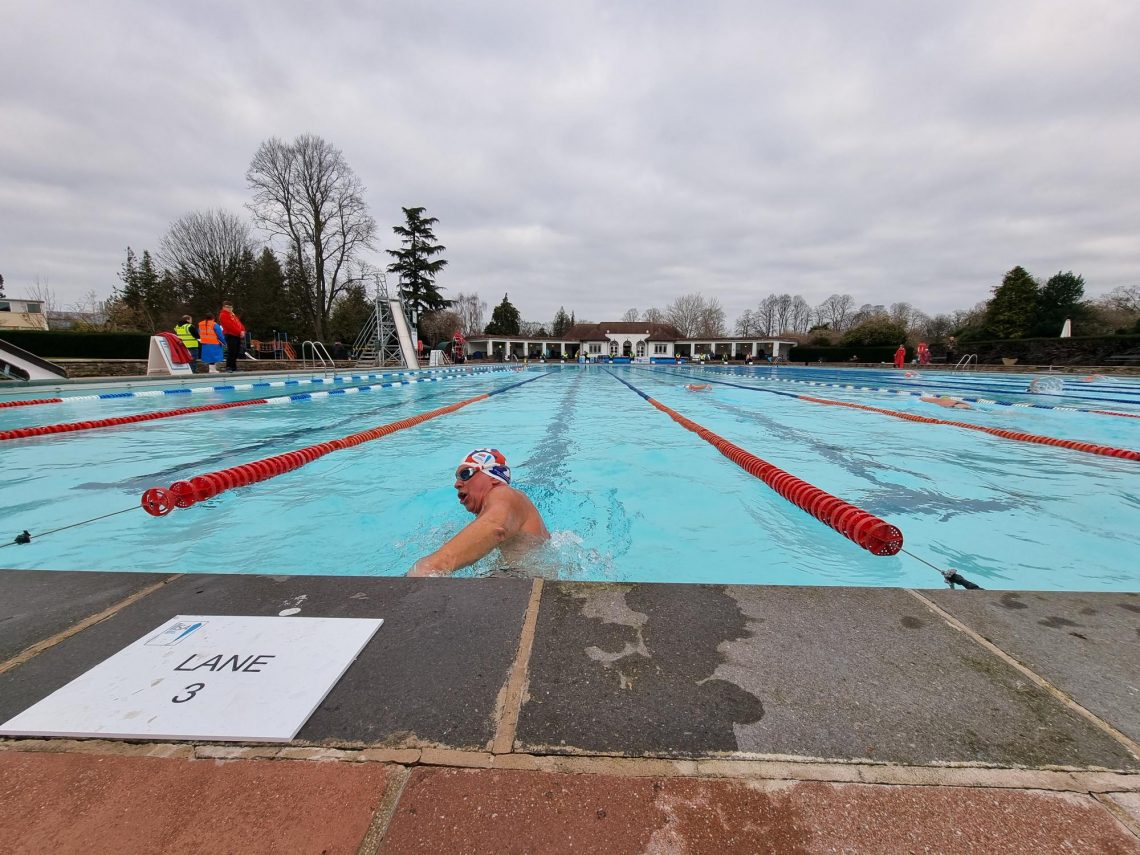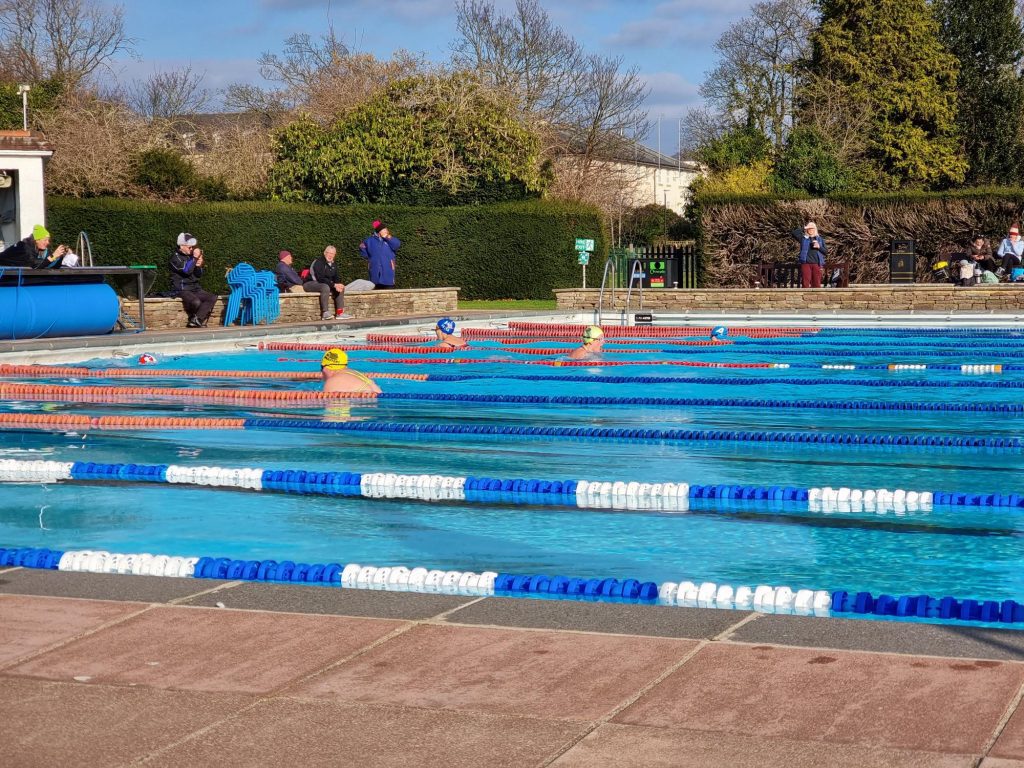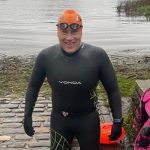
Event review: IISA GB 2023 Championships
Sandford Park Lido, 11/12 February 2023
Cold water swimming looks easy enough, especially at Sandford Park Lido when the sun is shining and the water is blue. Accomplished cold water swimmers barely flinch as they enter the water. When they swim, they look competent and comfortable. But don’t be fooled. There’s no magic that happens when you race in cold water that stops you from suffering its relentless impact on your body and mind. It’s tough. And the further you swim, the harder it is.
The GB Ice swimming Championships were held in Sandford Park Lido and the 11 and 12 of February with races ranging from 50m breaststroke up to 1,000m front crawl. As a measure of the expected difficulty of the challenge, all swimmers for the 1,000m challenge needed an ECG and a medical form signed by their GP. To enter the 500m swim, you had to prove you had completed a 400m swim in water of less than 5 degrees. All swimmers needed to wear a waist strap to make it easier for rescuers to remove them from the water in an emergency. Swimmers in the longer events required a ‘second’ who watched their swim, handed them their towel and clothes on finishing, and then walked them back to the recovery area.
Not being an accomplished cold water swimmer, I opted to do one of the shorter races – the 100m front crawl. While I swim often in cold water, I mostly do sunrise dips in the river. I wear a bobble hat, swim head-up breaststroke and chat with my friends. As preparation for the race went, it helped reduce cold water shock, but it wasn’t ideal.
Remove your clothes

Once you enter a cold water event, there’s a remorseless inevitability about it. You could pull out, but you don’t. You get ready and line up at the allocated time to be marched to the start. You obey the instructions to remove your clothing and enter the water. You submerge your shoulders, as you’ve been told even though you really, really, really don’t want to, and then you start swimming.
It usually takes me 90 seconds to 2 minutes before I start to feel comfortable in cold water. This 100m sprint was over in less time than that. My breathing was ragged and the water stung my face. I’ve seen the video and it looks like I was swimming normally, but I felt clumsy. Approaching the finish, I was lightheaded and dizzy, and very glad I hadn’t entered a longer swim.
I haven’t swum a long course 100m front crawl for a while but it usually takes me about 1.5 seconds longer than in a 25m pool. Dives and tumble turns aren’t allowed in the cold, so that cost another chunk of time, plus there’s the effect of the cold itself. In total, I was about 8 seconds slower than I was in my most recent race in a heated indoor 25m pool, and I was pleased with that as I thought it might be more – but it also makes me wonder if there’s scope for improvement…
But really, although it was a race and there were medals up for grabs, the competition was secondary. I was pleased with my swim not because of my time or position, but because I did it. I faced the cold and put in my best effort and that felt great. Looking around, I think most people felt the same way.
The water temperature at these GB Ice Swimming Championships was 5.7 degrees, slightly warmer than the maximum 5-degrees defined by the IISA as “ice swimming”. There was some disappointment among the elite swimmers that it wasn’t colder as records can only be broken when the temperature is cold enough. But some of us were secretly relieved. Full results from the event will be available on the IISA website shortly. https://internationaliceswimming.com/past-iisa-events/








